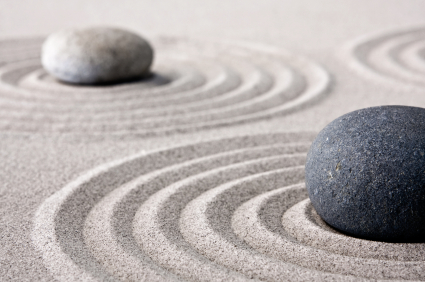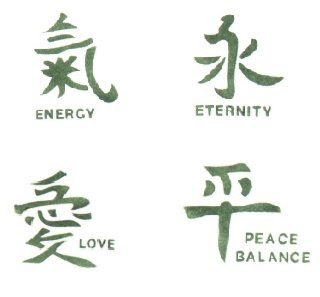

Wu wei is closely connected to the Daoist reverence for the natural world, for it means striving to make our behaviour as spontaneous and inevitable as certain natural processes, and to ensure that we are swimming with rather than against currents. Something of the meaning of wu wei is captured when we talk of being ‘in the zone’ – at one with what we are doing, in a state of profound concentration and flow. It means being at peace while engaged in the most frenetic tasks so that one can carry these out with maximum skill and efficiency. It doesn’t mean not acting, it means ‘effortless action’ or ‘actionless action’. According to the central text of Daoism, the Dao De Jing : ‘The Way never acts yet nothing is left undone’. Yet this concept is key to the noblest kind of action according to the philosophy of Daoism – and is at the heart of what it means to follow Dao or The Way. It sounds like a pleasant invitation to relax or worse, fall into laziness or apathy. You are using this dictionary for free, and you get what you pay for.Wu wei means – in Chinese – non-doing or ‘doing nothing’. We did not write any of these definitions (though we occasionally act as a contributor/editor to the CC-CEDICT project). No warranty as to the correctness, potential vulgarity, or clarity is expressed or implied. We'll also be happy to help you translate something for other purposes. We do offer Chinese and Japanese Tattoo Services.
SHIN ZEN MEANING IN CHINESE PROFESSIONAL
Please consult a professional before doing anything stupid with this data. Just because a word appears here does not mean it is appropriate for a tattoo, your business name, etc. We incorporated these 16,850 entries into our dictionary database ourselves (it was lot of work).Ĭombined, these cover 1,007,753 Japanese, Chinese, and Buddhist characters, words, idioms, names, placenames, and short phrases. Every professor who teaches Buddhism or Eastern Religion has a copy of this on their bookshelf. Some of these definitions may be misleading, incomplete, or dated, but 95% of it is good information. It was first published in 1937 (and is now off copyright so we can use it here). This is commonly referred to as "Soothill's'".

This dictionary uses the EDICT and CC-CEDICT dictionary files.ĮDICT data is the property of the Electronic Dictionary Research and Development Group, and is used in conformance with the Group'sĬhinese Buddhist terms come from Dictionary of Chinese Buddhist Terms by William Edward Soothill and Lewis Hodous. They have the same root meaning of "hot water", but a 湯屋 sign on a bathhouse in Japan would lead a Chinese person to think it was a "soup house" or a place to get a bowl of soup.

Language evolves, and meanings independently change in each language.Įxample: The Chinese character 湯 for soup (hot water) has come to mean bath (hot water) in Japanese. Much of the time, if a word or character is used in both languages, it will have the same or a similar meaning. Chinese characters and even whole words were borrowed by Japan from the Chinese language in the 5th century. Apparently, we were the first ones who were crazy enough to think that western people might want a combined Chinese, Japanese, and Buddhist dictionary.Ī lot of westerners can't tell the difference between Chinese and Japanese - and there is a reason for that.


 0 kommentar(er)
0 kommentar(er)
